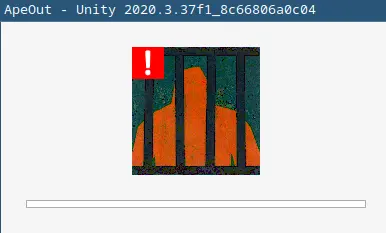this post was submitted on 13 Jun 2024
17 points (87.0% liked)
Linux Gaming
17964 readers
20 users here now
Gaming on the GNU/Linux operating system.
Recommended news sources:
Related chat:
Related Communities:
Please be nice to other members. Anyone not being nice will be banned. Keep it fun, respectful and just be awesome to each other.
founded 5 years ago
MODERATORS
you are viewing a single comment's thread
view the rest of the comments
view the rest of the comments

Assuming when you created the bottle, you chose "gaming", it will use "soda" as it's default runner, which is based off of proton. Maybe try going into preferences, runners, then click on "Soda", and try messing around with different versions.
According to the latest ProtonDB reports of Ape Out, Proton 8.0-5 was being used. Looking at my available "Soda" runners in bottles, I see
soda-8.0-2,soda-9.0-1, andsoda-experimental_8.0as the latest runners available. I would try using those runners as a start.Also, (I only now just noticed it), under preferences, in General, there is an "Integrations" section. Under that there's "Steam Proton Prefixes", which (I assume) allows you to use Proton prefixes.
Here are the following commands, depending on your installation method of Steam to give permissions to Steam's path if it doesn't have it already.
Steam non-Flatpak:
flatpak override --user com.usebottles.bottles --filesystem=xdg-data/SteamSteam Flatpak:
flatpak override --user com.usebottles.bottles --filesystem=~/.var/app/com.valvesoftware.Steam/data/SteamAlternatively you can use Flatseal and add the path:
~/.var/app/com.valvesoftware.Steam/data/SteamThanks; it runs now. It runs at 3–5 fps, and the CPU is maxed. I have played Ape Out on linux with bottles before, and it ran fine. I used Pop-Os Gnome; now I use Fedora Sway.
Happy to help!
Do you have a GPU or are you running the game on integrated graphics? Running on integrated graphics can definitely be the issue here but It's more likely that it's shader compilation however.
I have a GPU and CPU with integrated graphics; is there any way to check if it's using the GPU or CPU? If it is a shader problem, is there a way to fix it?
You can check if it's using the Discrete GPU by going into "Details" in your game's bottle, then go into "settings", and make sure that the toggle for "Discrete Graphics" is turned on. You can also set an environment variable;
DRI_PRIME=1. Also might want to check your HDMI or DP cable is plugged into your GPU. You could also try checking GPU usage while the game is running, and seeing if it's using your GPU at all.You said you moved to Fedora from Pop_OS; If you are using an Nvidia GPU, you might want to check if you've got the Nvidia Proprietary drivers installed or the Nouveau drivers. You can check this by running
lsmod | grep nvidiain a terminal. If you get any output whatsoever then you're using the Nvidia Proprietary drivers, which is what you want for gaming.If it is a shader issue; in the same "settings" in bottles make sure DXVK and VKD3D aren't disabled. There's no real way to bypass shader compiling. All your games need to compile shaders.
When I enable DXVK and VKD3D, the game doesn't launch. I am using an AMD GPU. I just get the same error
The only times I've encountered a game or program not launching via Bottles, it had to do with missing dependencies and/or other issues with the installer.
SteamDB has a list of dependencies that are used for Ape Out, of which you can try adding to your Bottle.
However, I would try running the game in Lutris; In Lutris, if you encounter issues with the game, you can click on "show logs" which will (hopefully) help you out a great deal. Lutris uses their own runtime which is primarily pulled from Valve's Steam runtime (IIRC), saving you from having to hunt for dependencies (if missing dependencies are the issue).
It somehow just works with lutris thanks a lot, Sorry for the trouble. I should just have tried lutris. Do lutris always download user-made scripts, or is it just if you select it?
No problem! I'm glad I could help :)
Lutris does not automatically download user-made scripts; you have to add them manually.